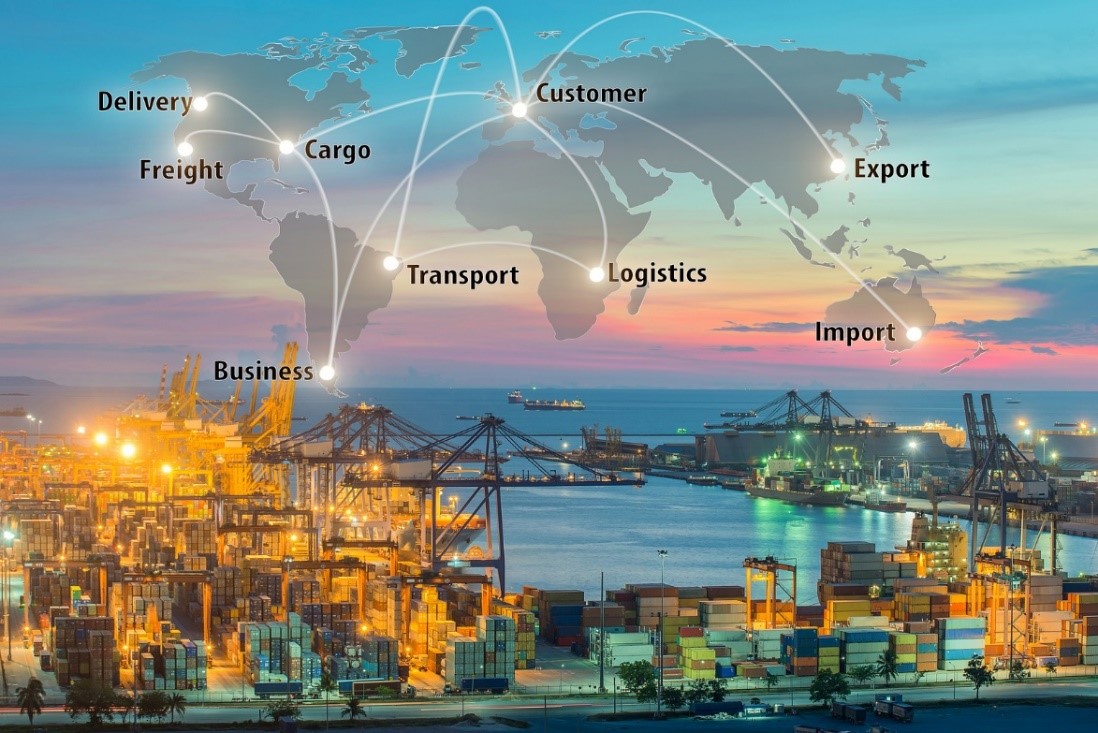Global Supply Chain Management: An essential tool for competitiveness in the global marketplace

For an organisation to underestimate the complexity of global supply chain management would be at its peril, and could ultimately result in financial suicide, says Dr Myles Wakeham.
Over the past decade or so, businesses have reacted to the demands of Internationalisation and globalisation. In every sector and industry, suppliers, manufacturers, wholesalers and retailers have fragmented throughout the world in order to conduct business overseas and thereby increase sales and profits, reduce costs, and improve production and output in an extremely cut-throat international business arena.
A major change has occurred in that local and nationally represented firms have moved from marketing local goods internationally to sourcing raw materials, services and goods to sell to local and international customers. This change was the result of the introduction of new technologies, improved information, more cost-efficient transport, reduced trade barriers and barriers to investments and as importantly, the emergence of large markets like India and China.
The objective of supply chain management (SCM) is to effectively manage and control the flow of goods, information and finance through business linkages in the most cost-efficient manner. Effective SCM reduces costs, diminishes waste, prevents over-production and helps ensure that the organisation is satisfying its customers by providing superior value.
It is therefore an essential tool for competitiveness in a global marketplace. An organisation that underestimates the complexity of global SCM would imperil itself, ultimately resulting in financial suicide.
Co-ordinating the flow of materials, information and finance through the various players in the supply chain, involves many challenges such as:
- Conflicting business goals, objectives and needs;
- The inherent uncertainty entrenched in every supply chain as the more expansive the supply chain becomes, the greater the risk;
- Changing legislative, social, cultural, economic, political and ecological environments;
- Uncertain demand and seasonality;
- Increasing cost of materials and components and the shortage of some materials;
- The management of production and transportation of goods over long distances;
- Currency fluctuations;
- The protection of intellectual property;
- The monitoring of supply partners’ business practices and financial stability over long distances;
- Accessing finance and insurance;
- Compliance with international regulations and standards (e.g. quality standards, import and export restrictions, safety and packing regulations and labelling regulations vary around the globe). For companies new to international trade, ensuring that materials provided by a foreign supplier will meet all domestic entry regulations can be a daunting undertaking. Trade intermediaries and customers have spread around the globe, as companies strive to lower their costs, increase their profits and improve productivity in a highly competitive global marketplace;
- Product quality (in some countries the standard of quality is low;
- Language and cultural barriers;
- Time zones and delays;
- No international law, so disputes could lead to expensive litigation.
Companies decide to enter international markets for a variety of reasons, which require different strategies, a variety of performance objectives and as importantly, forms of market entry. These can vary from exporting directly from South Africa to consumers in selected countries, to setting up shop in the chosen countries by means of manufacturing plants, service organisations, retailers and so on.
The reasons to enter the international marketplace and thereby enjoy new export opportunities, are:
- To extend the longevity of existing offerings that have reached their maturation and decline stage of their lifecycles in the home country;
- To increase sales and profits;
- Short-term (vulnerable to periodic fluctuations) and long-term security (excess capacity can be used to increase sales and reduce costs by means of economies of scale);
- Increasing innovation. Internationalisation can help fund new product development;
- To earn hard currencies like Euros and US dollars;
- Economies of scale. Exporting is an excellent way to expand a business with products that are widely accepted around the world;
- Under certain circumstances, a company might undertake an international market entry not solely for financial reasons, but to learn. For example, Spur and Nando’s entered the UK to learn about the highly contested fast food industry and to take advantage of opportunities to position their offerings in the market;
- Competitive attack (take on competitors in order to obtain market entry);
- Government incentives. It is common for governments to “incentivise” their country’s companies to export;
- The internet has opened the door for companies to trade all over the world. Previously it was too expensive to do this. Now you do not even need to have a physical presence in a country in order to do business;
- The freelance economy. The ‘gig’ economy is one of the reasons why companies go global. Many companies are now hiring teams they will never meet in person;
- Cultures are homogenising. They are becoming more and more similar as Western and Eastern influences permeate markets. Today the Chinese eat Big Macs, the Indians dine on pasta, the English consume curry and the Australians love biltong;
- Increase the prestige of the company’s brand and overall customer reach;
- Reduced cost to do business elsewhere (the cost of labour in China is relatively inexpensive)
Save on taxes (tax havens allow for increased profitability)
